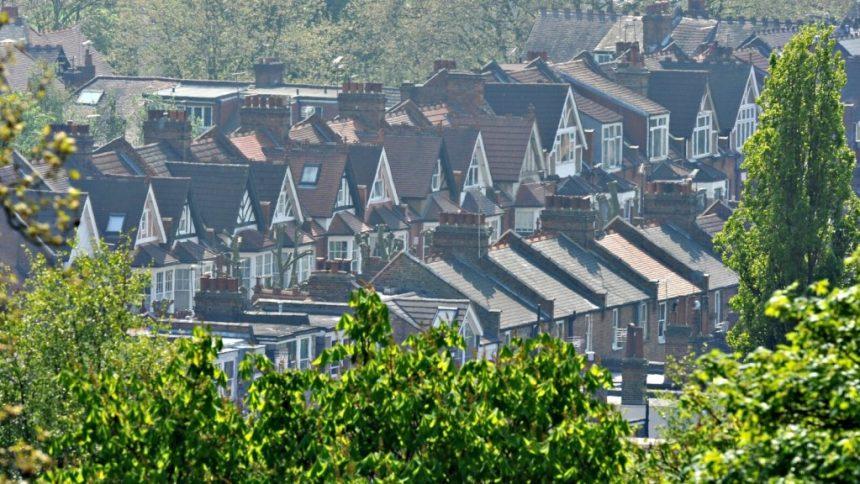From a vantage point atop a low hill overlooking the muddy banks of the Thames estuary, the potential of Ebbsfleet as a new town begins to take shape amidst chalk cliffs, ponds, and scrubland.
This transformation, once a cement works site, is central to Prime Minister Keir Starmer’s ambitious plan to address the UK’s persistent housing shortage.
A Vision for Massive Development
Simon Dudley, chair of the public development corporation overseeing Ebbsfleet’s creation, expressed optimism during a recent site visit. “As far as the eye can see, all the way out there, will be development,” he said. The goal is to build a community comparable in size to Chichester, with tens of thousands of homes planned on the 2,500-acre site just 17 minutes by high-speed train from central London.

Despite decades of planning and multiple government pledges since the early 1990s, progress has been slow. Originally proposed by John Major’s government in 1994 with plans for 43,000 homes, only 4,000 have been built to date. Completion is now projected for at least 2035, with potential overruns into the 2040s.
READ ALSO: Abuja’s Housing Crisis: Young Nigerians Struggle as Living Options Dwindle
Keir Starmer’s Housing Revolution
Prime Minister Keir Starmer has vowed a “revolution” in housing, aiming to add 1.5 million new homes by the next general election in 2029. Central to his strategy is the removal of restrictive planning laws and empowering new development corporations to expedite private sector development. “The tone coming out of the new government is very encouraging,” Dudley noted. “They don’t have a schizophrenic attitude to housing development… We’re cranking the lever and ready to deliver.”
However, achieving this target is daunting. The UK has not built more than 300,000 homes annually since 1977, and last year only 189,260 homes were added to the housing stock. Experts like Anthony Codling from RBC Capital highlight the significant supply challenges, noting the lengthy planning and construction timelines.
READ ALSO: Ireland’s Emergency Housing Crisis Escalates to 14,000
Ebbsfleet’s Struggles and Potential
Ebbsfleet has been a focal point for housing initiatives across various administrations. From Tony Blair’s 2003 promise to expand housing along the Thames Gateway corridor to David Cameron’s “housing revolution” in the 2010s, the site has consistently been earmarked for major development. Yet, progress remains sluggish, with much of the land still undeveloped.
Ambitious projects, such as the planned 50-meter high white horse statue meant to serve as an “Angel of the South” landmark, never materialized. Despite these setbacks, the construction of homes in areas like the Castle Hill estate indicates gradual community growth. Current developments are delivering around 700 homes per year, positioning Ebbsfleet among the fastest-growing housing areas in the country.
Challenges Ahead
The path to realizing Starmer’s housing goals is fraught with obstacles. Infrastructure development, including roads, power networks, and public services, must keep pace with housing. Local residents like Danielle and Dominic Sambrook, who moved to Ebbsfleet in 2019, express frustration over the lack of facilities. “We’re moving away. It had promise when we moved, but the lack of development of the community means we haven’t got huge connections to stay,” Danielle Sambrook shared.
Additionally, environmental concerns pose significant challenges. The aborted £2.5 billion London Resort theme park project on the Swanscombe peninsula highlights the tension between development and nature conservation. Natural England’s designation of parts of the peninsula as a site of special scientific interest underscores the need for sustainable development practices.
Looking Forward
Lord Michael Heseltine, a key figure in Ebbsfleet’s development, remains cautiously optimistic. “I’m not that critical of the new government, actually,” he said. “They’ve made quite a reasonable start. But that’s the easy bit. In the end, you have to do things. And that means decisions.”
READ ALSO: Stanbic IBTC Bank Introduces Flexible Home Loans to Address Lagos Housing Crisis
The development corporation continues to push forward, leveraging public funds to support vital infrastructure and streamline planning processes. With new government measures expected to speed up and simplify planning, and financial backing likely to be detailed in the upcoming budget, Ebbsfleet could become a pivotal model for Starmer’s housing strategy.
Community and Sustainability
Ensuring that new towns like Ebbsfleet are not just housing clusters but thriving communities is essential. This involves integrating schools, healthcare, transportation, and recreational facilities to create livable environments. As development progresses, balancing growth with environmental sustainability will be crucial to gaining public support and achieving long-term success.
Conclusion
Ebbsfleet stands as a microcosm of the UK’s broader housing challenges and ambitions. If Keir Starmer’s policies can overcome the historical delays and infrastructural hurdles, new towns like Ebbsfleet might indeed provide a viable solution to the nation’s housing crisis. However, the journey requires coordinated efforts, substantial investment, and a commitment to sustainable and inclusive development.



